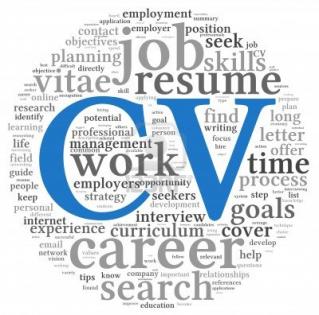Everyday I see many CVs or résumé's of people looking for a new job. Some of them are good and it's clear they are current and updated. But many of them are also out-of-date and nothing looks so sloppy when you're in the market for a new job as to submit something that is missing some vital information.
Even if you're not looking for a job, it's always useful to keep your CV up-to-date. Be proactive and make a habit of re-visiting it every three months or so. By doing so, when that perfect job comes up suddenly or someone taps you on the shoulder and asks you to apply for a job overnight, of having to do it as a 'rush job'.
Here are my top 10 tips that you should consider when you're reworking your résumé.
1. What is your unique selling point?
What skills do you have that will make you stand out from the numerous others applying for the same roles? Just remember, it takes the average recruiter less than 7 seconds to pass judgement on your working life and there'll be lots of other people after the same job.
2. Length
If it is longer than two pages – regardless of your amount of experience/job roles – condense it. Make sure it is clear and concise. You don't need chapter and verse on every job you've done. Generally speaking, unless it's particularly relevant for the role you're applying for, don't go back beyond the previous 10 years. Obviously, there are always exceptions to this very general rule, such as academic or medical positions.
3. Spelling and Grammar
As obvious as it may appear, spelling and grammar mistakes do happen. It is always worth getting someone else to read it over.
4. Keywords
Sad, but true. Often your résumé is processed by a computer, not by a person. Make sure you have the right keywords for the role. If you're responding to an advertisement, the keyword clues will be in that. What words are they using? Repeat them back in your résumé and covering letter.
5. Skills and Experience
Don't rely on vague skill phrases such as "problem-solver" or "team-player". If you're lacking in skills and you know it now, give yourself an edge and do a course! If you don't have time for that - because you're applying for the role now - don't try to gloss over it or "vague-it-up" as some people say. You will be found out.
6. Don't give your life story
See (2) above also! You need to get your potential employer (or recruiter) interested enough that they want to meet with you.
7. Cultural fit
Are you applying for a job in an area where you have a passion or interest? Have you done voluntary work in the sector? This is often the case in sport or charity work, so it helps to make note of this to help your application as it demonstrates initiative and cultural fit.
Most of the people I see in this age group are highly skilled, have up-to-date skills, are motivated, professional and hard-working - but many 30, 35, 40-year old managers don't want to work with them. To help a little, I tell them (a) they are not obligated to put their age or date of birth on a résumé or any document they are asked to sign (except, when they get a job, their Tax Office obligations) and (b) don't put the year they graduated.
10. Contact information
Make sure your contact information is clear, easy to locate at the top of the page and is hyperlinked to your website, blog or social media page.



















__small.png)










